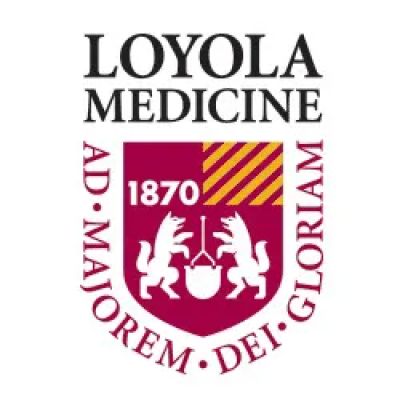How to Prevent Heart Disease Through Exercise and Diet: A Comprehensive Guide
- Understanding Heart Disease and Its Risks
- The Role of Exercise in Heart Disease Prevention
- How Diet Can Help Prevent Heart Disease
- Combining Exercise and Diet for Optimal Heart Health
- Case Study: A Success Story in Preventing Heart Disease
- Conclusion: A Heart-Healthy Lifestyle
Understanding Heart Disease and Its Risks
Heart disease remains one of the leading causes of death globally, affecting millions of individuals every year. It encompasses a range of conditions, including coronary artery disease, heart attacks, and heart failure. While genetic factors certainly play a role, lifestyle choices such as diet and physical activity are critical determinants of heart health. Poor dietary habits, lack of exercise, and obesity are closely linked to an increased risk of heart disease. However, the good news is that heart disease is often preventable. By adopting a healthy lifestyle that includes regular exercise and a heart-healthy diet, individuals can significantly reduce their risk of developing heart disease.

The Role of Exercise in Heart Disease Prevention
Exercise is one of the most effective ways to prevent heart disease. Physical activity helps to strengthen the heart muscle, improve blood circulation, and reduce blood pressure—all of which contribute to better cardiovascular health. Regular exercise also helps manage other risk factors for heart disease, such as high cholesterol, obesity, and diabetes.
Studies have shown that engaging in moderate-intensity exercise for at least 150 minutes per week can lower the risk of developing heart disease by up to 30%. Cardiovascular activities like walking, running, cycling, and swimming are particularly beneficial in promoting heart health. Additionally, strength training exercises, such as lifting weights or doing resistance exercises, can help build muscle mass and support healthy metabolism.
Beyond the physical benefits, exercise also has a positive effect on mental health, reducing stress and anxiety—two factors that are linked to an increased risk of heart disease. Regular exercise promotes the release of endorphins, which improve mood and reduce feelings of depression and anxiety. This, in turn, can help individuals maintain healthier lifestyle choices and reduce the overall risk of cardiovascular issues.
Atlanta Heart Specialists
atlanta heart specialists
4375 Johns Creek Pkwy #350, Suwanee, GA 30024, USA

How Diet Can Help Prevent Heart Disease
A heart-healthy diet is crucial for preventing heart disease. Eating the right foods can help manage cholesterol levels, lower blood pressure, and prevent inflammation—all of which contribute to a healthier heart. A diet rich in fruits, vegetables, whole grains, lean proteins, and healthy fats is essential for heart health.
The Mediterranean diet, which is high in olive oil, fruits, vegetables, nuts, and fish, has been shown to reduce the risk of heart disease significantly. This diet emphasizes the consumption of unsaturated fats, such as those found in fish and plant-based oils, while minimizing the intake of saturated fats and trans fats, which can raise cholesterol levels and increase the risk of heart disease.
In addition to reducing unhealthy fats, it is important to monitor sodium intake. Excessive salt in the diet can lead to high blood pressure, a major risk factor for heart disease. Instead of relying on processed foods, which often contain high amounts of salt, it is best to prepare fresh meals with natural, unprocessed ingredients.
Moreover, including more fiber in the diet is essential for heart health. Foods like oats, beans, lentils, and vegetables are excellent sources of fiber, which helps lower cholesterol and maintain a healthy weight. A diet high in antioxidants, which are found in fruits like berries and vegetables like spinach, can also help reduce oxidative stress, a key factor in heart disease development.
Combining Exercise and Diet for Optimal Heart Health
While exercise and diet each offer significant heart health benefits on their own, combining both into a comprehensive lifestyle plan can have even more powerful effects. Exercise can help burn off excess calories, making it easier to maintain a healthy weight, while a proper diet ensures that the body has the nutrients it needs to support cardiovascular health.
For example, if you're following a healthy diet but not exercising, you may still be at risk of developing heart disease due to factors like poor circulation, obesity, and high blood pressure. On the other hand, if you are exercising regularly but consuming an unhealthy diet, you might still struggle with elevated cholesterol levels or high blood pressure, which can undermine the benefits of exercise.
To achieve optimal heart health, aim to engage in regular physical activity while focusing on a heart-healthy diet. Together, these two practices can help lower blood pressure, reduce harmful cholesterol levels, and improve overall cardiovascular function. If you are unsure where to begin, consider working with a healthcare provider or nutritionist to develop a personalized plan that suits your needs and goals.
Case Study: A Success Story in Preventing Heart Disease
Meet John, a 45-year-old man who was diagnosed with high blood pressure and elevated cholesterol levels. His doctor informed him that he was at risk of developing heart disease if he didn't make some serious lifestyle changes. Instead of relying on medication, John chose to take charge of his health by adopting a new routine of exercise and diet.
He began by incorporating 30 minutes of brisk walking into his daily routine and gradually increased his activity level to include cycling and strength training. Simultaneously, John switched to a Mediterranean-style diet, focusing on fresh vegetables, lean proteins, and healthy fats. Within six months, John lost 15 pounds, his blood pressure dropped to a normal range, and his cholesterol levels improved significantly. John's doctor was impressed with his progress and noted that his chances of developing heart disease had dramatically decreased.
John's success story is a testament to the power of combining exercise and diet in preventing heart disease. With dedication and the right lifestyle changes, individuals can dramatically improve their cardiovascular health and reduce their risk of heart disease.
A Heart-Healthy Lifestyle
Preventing heart disease through exercise and diet is not just a goal; it's a lifestyle choice that can lead to a longer, healthier life. By incorporating regular physical activity and following a heart-healthy diet, you can reduce your risk of developing heart disease and enjoy the many benefits that come with a healthy heart.
It’s important to remember that prevention is always better than treatment. While medication may help manage existing heart conditions, adopting healthy habits like exercise and diet can help prevent them from developing in the first place. If you're unsure where to start, consult with your doctor to create a personalized plan tailored to your needs.
Take charge of your heart health today—start exercising, eating better, and living a healthier life. Your heart will thank you for it!





















Deborah Heart and Lung Center
deborah heart and lung center
200 Trenton Rd, Browns Mills, NJ 08015, USA